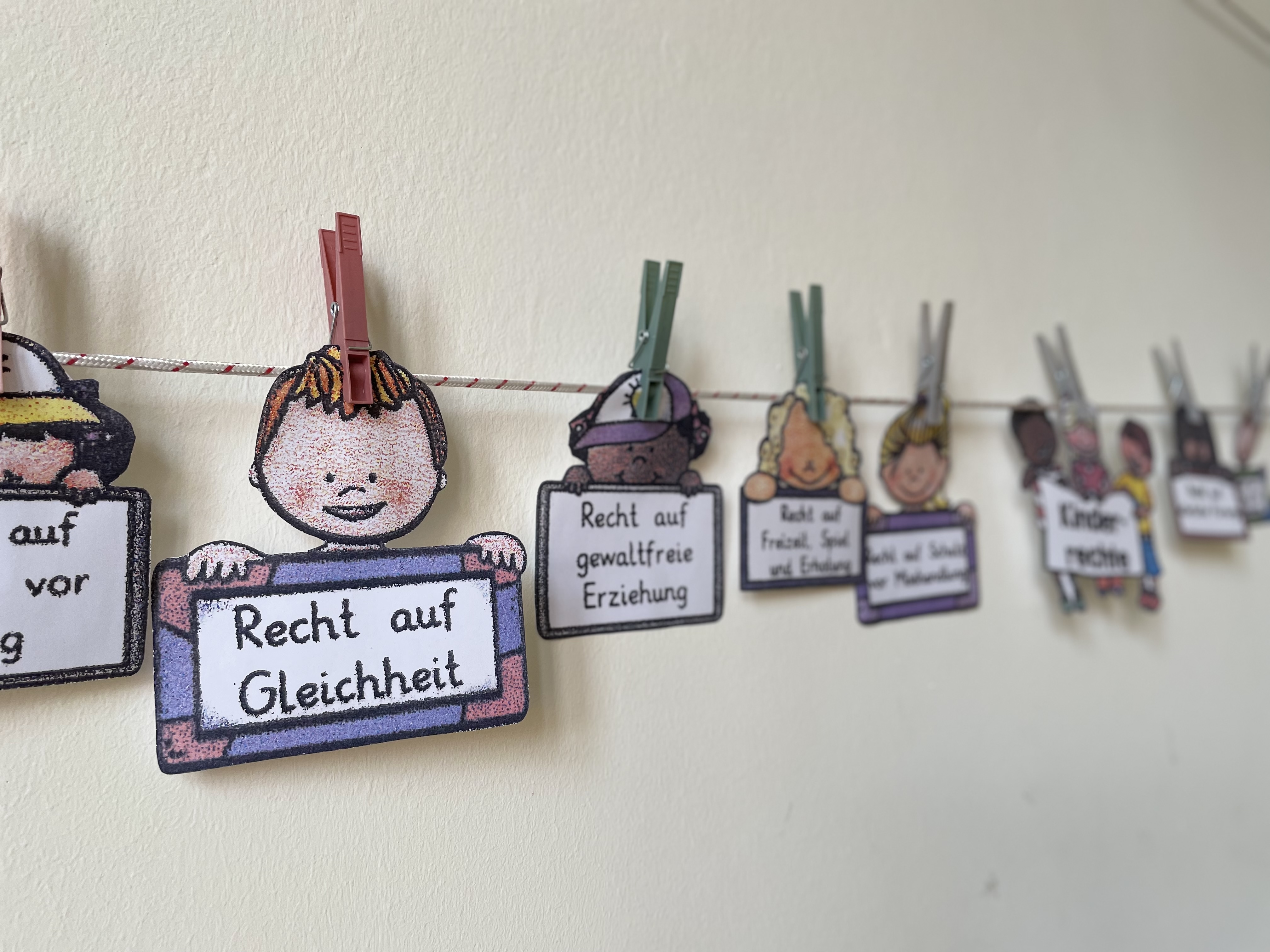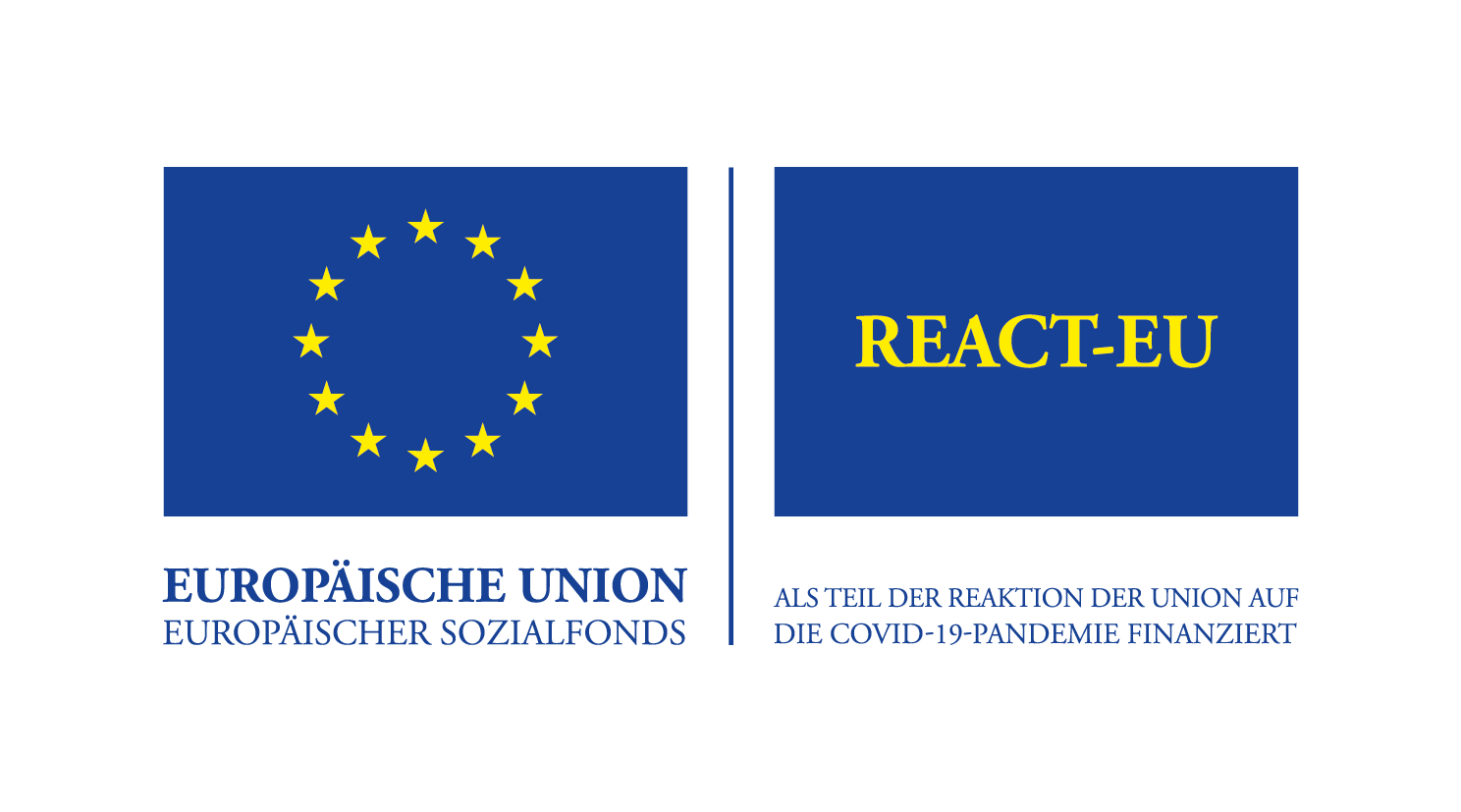Our pedagogy
At the Altes Schulhaus, children and their needs are the focus of our daily work. We attach great importance to participation and involvement. Our cooperation is characterized by respect, tolerance and appreciation. Our non-denominational institution is characterized by the following points:
- Boundaries as support and orientation: Setting boundaries is seen as a supportive anchor for civilized and peaceful coexistence.
- Appreciation of individuality: Every child is seen as unique and differences in personality are respected and valued.
- Teaching ethical values and actions: Children should learn ethical values such as charity and actions such as helpfulness, as well as respect for nature.
- Age-appropriate child participation and democratic coexistence: Through child participation, especially in the organization of their everyday lives, children experience a practical introduction to democratic coexistence.
- Promoting self-determination and a spirit of discovery: The children are given the opportunity to be independent inventors and discoverers, to explore their living environment in a self-determined way and to live out their imagination.
- Development of decision-making skills and empathy: Children learn to make decisions, show consideration and contribute their own needs, encouraging courage and helpfulness.
- Diverse learning: The children learn to communicate in different forms of expression, develop social and solidary behavior and thus learn to deal with conflicts in a meaningful way.
- Intercultural competence: Children with different languages and cultures are integrated and the children learn to deal with cultural differences.
- Independent personality development: The children are accompanied on their way to becoming independent and strong personalities, learn to find their way in the world, to overcome conflicts and to prioritize cooperation as a solution approach.
Needs-based pedagogy helps children to recognize their individual strengths and weaknesses and to assess their needs and those of others. The focus is on developing an independent and strong personality.
Participation in the children's home
Children
The participation of children in the Kinderhaus is organized in various ways:
- Children’s conferences: Regular meetings where children can talk about different topics, exchange ideas and make decisions together.
- Children’s restaurants: Involve children in decision-making regarding the menu, table decorations and other aspects of meals.
- Children’s consultation hours: Consultation hours set up where children can discuss their concerns, ideas or questions with the educational staff individually or in small groups.
- Complaint forms: Providing clearly structured forms or procedures through which children can make complaints or suggestions to make their views known about certain aspects of the children’s home.
- Moodboard: Children can express their emotions and preferences visually, which can help them to recognize and communicate their feelings.
- Participation in activities: Involvement of children in the selection of activities, be it excursions, playtimes or other program items.
- Designing the environment: Involving children in decisions about the design of their physical environment, for example by choosing furniture, colors or design elements.
- Participation in the organization: children’s participation in defining house rules and activities in order to promote democratic coexistence.
- Participation in decisions about the daily routine: Children are involved in making decisions about the daily routine in order to take their preferences and needs into account.
- Project work and choice of topics: Opportunity for children to suggest topics for projects or participate in the selection of thematic focuses.
- Participation in conflict resolution: Children are encouraged to actively participate in conflict resolution by sharing their perspectives and proposed solutions.
- Involvement in evaluation processes: Children can participate in evaluation processes in which their experiences and opinions contribute to the further development of the children’s home.
- Participation in committees and assemblies: Setting up children’s parliaments or assemblies to give children the opportunity to voice their concerns and discuss certain issues together.
The variety of these participation opportunities enables the children to actively take part in what happens at the children’s home, express their opinions, contribute to shaping their environment and thus experience self-efficacy.
Parents
Parental participation in kindergarten is crucial for successful cooperation between teachers and parents. Here are some ways in which parents can participate in kindergarten:
- Parents’ council, which represents the interests of the parents and is involved in the decisions of the kindergarten facility.
- Participation in parents’ evenings: Regular meetings provide a platform for the exchange of information, ideas and concerns between parents and the pedagogical team
- Co-organization of festivals and events: Parents can actively participate in the organization of festivals, events and projects.
- Parent consultation days: opportunity for personal discussions with the teachers about the development and needs of their own child.
- Participation in projects and activities: Parents can contribute their expertise in certain areas or support the kindergarten’s projects and activities.
- Letters to parents and information boards: Regular information about activities, dates and developments at the Kinderhaus enables parents to be well informed and actively involved.
- Joint projects: Initiation of joint projects between parents and educators that strengthen cooperation and mutual understanding.
- Parent-child activities: Implementation of joint activities or excursions to involve parents directly in the day-to-day life of the kindergarten.
- Discussion opportunities for parents: Consultation hours or “open days” allow parents to discuss their concerns directly with the educators.
- Visits: Parents have the opportunity to visit our facility at any time.
- Parent surveys: The annual parent survey allows parents to anonymously evaluate the work of the team. This is an important part of our quality management in order to be able to constantly improve.
- Parents’ café: A parents’ café is held regularly as an informal meeting place. Parents can exchange ideas, communicate with each other and make new contacts.
The establishment of diverse participation opportunities creates a positive and supportive environment for cooperation between parents and the pedagogical staff. Team





